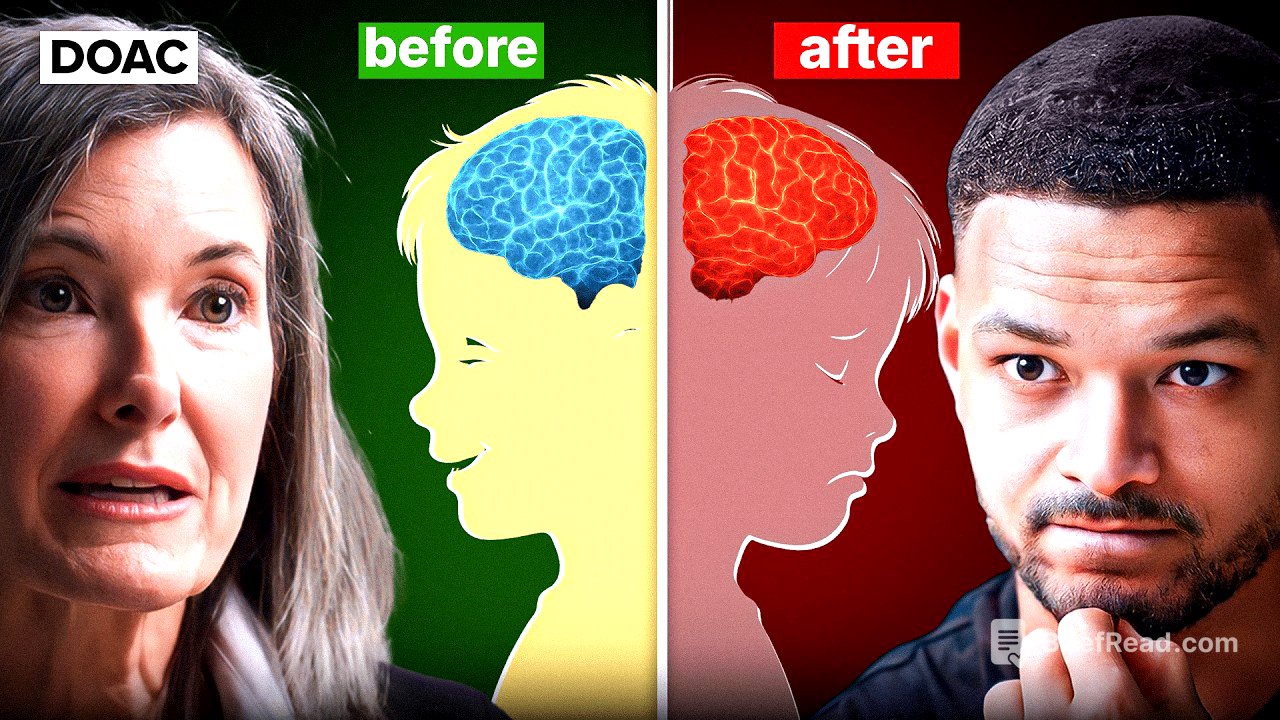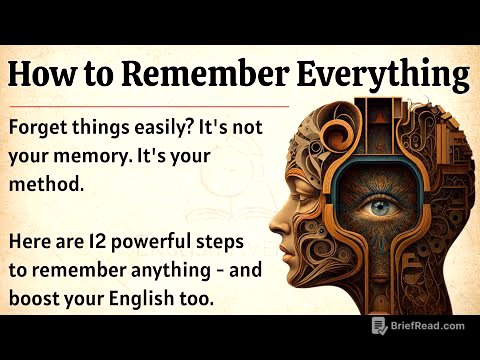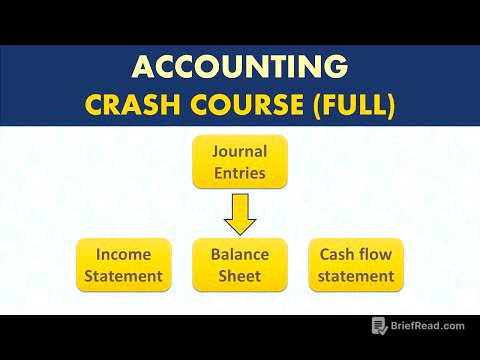TLDR;
This video addresses the significant increase in ADHD diagnoses and prescriptions, particularly among children and young adults. It challenges the conventional understanding of ADHD as a disorder, framing it instead as a stress response rooted in early childhood experiences and environmental factors. The speaker emphasizes the critical role of parental sensitivity and attachment in mitigating stress and preventing the development of ADHD. Additionally, the video explores the impact of modern societal pressures and the over-reliance on medication, advocating for a deeper, more relational approach to understanding and addressing the root causes of anxiety and stress in children.
- ADHD is reframed as a stress response rather than a disorder.
- Early childhood experiences, especially parental sensitivity, play a crucial role in brain development and stress regulation.
- Societal pressures and over-reliance on medication contribute to the rise in ADHD diagnoses.
- A relational, dynamic approach to understanding and addressing the root causes of anxiety and stress is advocated.
Introduction: Shocking Rise in ADHD Diagnoses [0:03]
The video begins by highlighting the alarming increase in ADHD diagnoses and prescriptions over the past decade. Statistics from the UK and the US reveal a significant surge, particularly among boys aged 10 to 16 and men aged 18 to 29. This surge prompts the question of what factors are contributing to this phenomenon and whether the current approach to addressing ADHD is adequate.
Fight or Flight Response and the Amygdala [1:18]
The speaker introduces the concept of the fight or flight response as an evolutionary reaction to stress. In children, stress can manifest as aggression or distraction. The amygdala, a primitive part of the brain, regulates stress. It is supposed to remain relatively inactive during the first three years of life. Early activation of the amygdala due to factors like separation from mothers, daycare, and sleep training can cause it to become overactive and eventually burn out, leading to long-term stress regulation issues.
ADHD as a Stress Response [4:45]
ADHD is presented not as a disorder but as a stress response. Children in hypervigilant states of stress can eventually transition to hypo-vigilant states, leading to depression. The speaker emphasizes that the focus should be on identifying and addressing the sources of stress in children's lives rather than simply medicating the symptoms. The amygdala acts as the "on switch" for stress, while the hippocampus is the "off switch." In children with ADHD, the amygdala is often overdeveloped, and the hippocampus is underdeveloped, resulting in a constant state of stress.
Parental Responsibility and Guidance [7:33]
The speaker asserts that parents play a crucial role in their child's ADHD. For young children, the home environment is paramount. When a child receives an ADHD diagnosis, the first step should be parent guidance therapy to identify and address psychosocial stressors. Examples of stressors include early daycare, divorce, fighting in the home, sibling rivalry, the birth of another child, moving, illness, addiction, and the death of a loved one.
The Role of Genetics and Sensitivity [10:54]
The discussion addresses the hereditary component of ADHD, particularly the sensitivity gene (a short allele on the serotonin receptor). While there is no direct genetic precursor to mental illnesses like ADHD, depression, or anxiety, the sensitivity gene makes individuals more prone to stress. However, providing emotionally and physically present attachment security in the first year of life can neutralize the expression of this gene. Epigenetics plays a role, as environmental factors can either activate or mitigate genetic predispositions.
Neurological Evidence and Sensitivity in ADHD [14:03]
The speaker addresses the neurological evidence, such as MRI scans, often cited to support the idea that ADHD is inherent to the brain. They argue that these scans reflect the brain's response to stress rather than a fixed condition. Individuals with ADHD are often highly sensitive to stimuli like noise, smells, and touch. Sensitivity, when met with appropriate care and understanding, can be a strength.
Medication and Alternative Approaches [16:12]
The video discusses the use of medication for ADHD, acknowledging that it can be life-saving in some cases. However, it cautions against the over-reliance on medication, especially as a performance-enhancing drug for adolescents and young adults. Stimulants can cause anxiety, panic attacks, and growth issues. The speaker advocates for exploring the root causes of stress before resorting to medication and emphasizes the importance of relational and dynamic therapies to address underlying traumas and anxieties.
Anxiety, Loss, and Societal Pressures [18:52]
Anxiety is defined as preoccupation with future losses, while depression is preoccupation with past losses. Both are linked to a sense of loss. The speaker suggests that current generations are preoccupied with loss, particularly concerning status and achievement. There is an overemphasis on material success, money, and fame, which distracts from the more important aspects of life, such as relationships, love, connection, and health.









